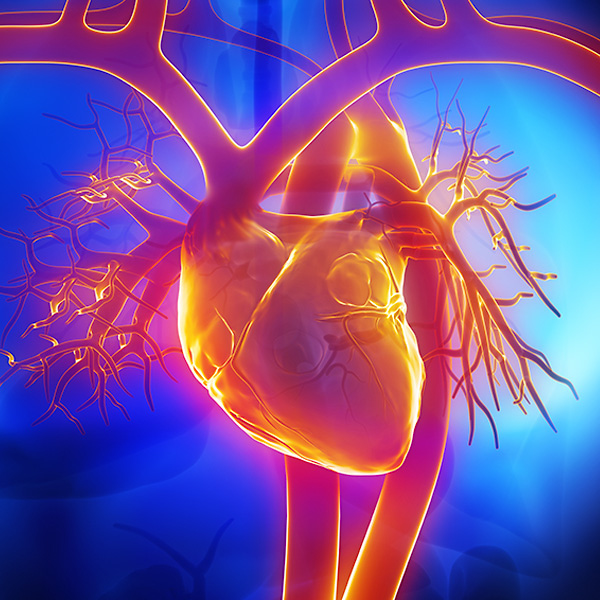Valvular Disease
Integrative Approach to Diagnose and Treat Heart Valve Diseases
Valvular disease is one of the many cardiac conditions diagnosed and treated by the highly skilled doctors at Loyola Medicine.
Valvular disease occurs when at least one of your four major heart valves is impacted by the failure to open properly (stenosis) and/or close properly, allowing blood to flow backwards in the heart (regurgitation). Stenosis and regurgitation may lead to the inability of the heart to pump blood adequately, which can lead to heart failure.
Heart valve problems can be present at birth or can be caused by infections, heart attacks or heart disease. The most common valvular condition is called mitral valve prolapse (MVP), which causes your mitral valve to leak. Mitral valve prolapse rarely causes symptoms and does not usually require treatment.
Other, more serious forms of valvular disease include:
- Infective endocarditis
- Tricuspid, pulmonary, mitral and aortic regurgitation
- Tricuspid, pulmonic, mitral and aortic stenosis
Loyola’s multidisciplinary valve team includes interventional cardiologists, cardiac and peripheral vascular surgeons and other specialists who work together to provide comprehensive and coordinated examination, diagnosis and treatment of valvular disorders.
Whether your condition requires medical management, a minimally invasive procedure or heart surgery, Loyola provides the expert, comprehensive care needed to manage your specific condition.
You will receive expert care at Loyola’s specialized Valve Center, which includes all surgical and minimally invasive valve procedures for the mitral, aortic, pulmonary and tricuspid valves.
Why Choose Loyola for Treatment of Valvular Disease?
Loyola’s cardiology and heart surgery program is nationally recognized for our diagnosis and treatment of cardiovascular conditions. We work with you to help you understand your condition and develop a treatment plan that is right for you.
Loyola receives the highest rating (three stars) from the Society of Thoracic Surgeons (STS), which reports heart surgery outcomes to the public for the benefit of patients.
This signifies Loyola’s commitment to providing the best care for surgeries of the heart, lung, esophagus and other procedures within the chest.
How is Valvular Disease Diagnosed?
Doctors at Loyola approach the diagnosis and treatment of valvular disease with great detail and care.
The following symptoms may indicate the presence of valvular disease, including a stenotic valve or a leaky valve:
- Chest pain
- Enlarged spleen
- Dizziness or fainting
- Fatigue
- Heart palpitations
- Night sweats
- Rapid weight gain
- Shortness of breath
- Swelling of the feet, ankles, hands or abdomen
In addition to your symptoms, physical exam and complete medical history, your doctor may request the following tests to definitively diagnose heart valve disease and determine the extent of disease progression:
- 3D transesophageal echocardiogram
- Cardiac catheterization
- Cardiac CT (computed tomography) scan
- Cardiac stress test
- Echocardiogram
- Electrocardiogram
- Transseptal cardiac catheterization
How is Valvular Disease Treated?
Loyola’s team of cardiologists and cardiovascular surgeons are expert at treating valvular disease. Our multidisciplinary team of specialists will work with you to determine the best treatment for your specific case.
From medical management to heart surgery, doctors at Loyola will work with you and your referring physician to provide the treatment option that is right for you.
In some cases, like mitral valve prolapse, medical monitoring is all that is necessary. If your heart valve is seriously deformed or degenerated, heart valve repair or replacement may be necessary and may include:
- Aortic valve repair and replacement, including transcatheter aortic valve replacement (TAVR)
- MitraClip
- Mitral valve repair
- Tricuspid valve repair
If your valvular disease requires repair or replacement, your Loyola doctor will be engaged in your long-term follow-up care, monitoring your progress and ensuring your continued health.
Your team at Loyola believes in a shared care model, where they communicate with your primary care physician about your condition, returning you to their care once a treatment plan for your condition is underway. This greatly benefits patients who may wish to receive follow-up care from a physician who is closer to home.

Request an Appointment
Loyola Medicine heart and vascular specialists have the experience and technology to treat the most difficult cardiac and vascular conditions. Schedule an appointment today.
Schedule a Telehealth Appointment
